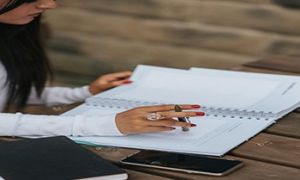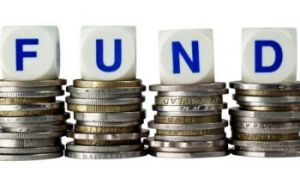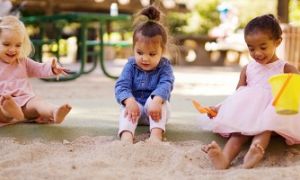

Play-based learning and school readiness are closely connected, as this approach nurtures the skills children need to succeed in school while maintaining their natural curiosity and love of learning. The following article provides information on How Play-Based Learning Supports School Readiness, Examples of Play-Based Learning for School Readiness, How Do Children Learn Concepts Through Play Based Learning, Examples Of Learning Colours, Numbers, Shapes, Letters Through Play-Based Learning, Importance of Play-Based Learning and more.
The value of play in early childhood cannot be overstated, as it is essential for a child's overall development and well-being. The following article provides information on Why Play Is So Valuable, What Is Play?, Why Is Play Important For Children's Development, Educator's Role In Play, Styles Of Play, What Happens When Children Don't Play, How To Encourage Children To Play, Play Theories, Linking Play To The EYLF and more.
Spontaneous play is exactly what it says – play that happens naturally, without any prior planning or being directed by anyone outside the play. In the early childhood context, spontaneous play is usually child-initiated and directed though it can include adults as well. The following article provides information on spontaneous play benefits and how educators can support it.
As part of what the state premiers have called as "the greatest chance of early education in a generation," Victoria and New South Wales will implement a new year of play-based learning for children before they start school. The programme, known as "pre-prep" in Victoria and "pre-kindergarten" in NSW, will consist of 30 hours of play-based learning each week for all four-year-olds.
Unstructured play materials refer to those play materials whose uses are not predetermined by educators. Also known as of heuristic play materials, the scope for play with unstructured materials is thus unlimited, allowing children to develop agency, skills and imagination. The following article provides information on what types of unstructured play materials can be included, how to store play materials and how to facilitate children's play.
 As an Educator in Australia, your pay rate falls under the Children’s Services Award 2010. This award states the minimum amount that an employer can… Read More
As an Educator in Australia, your pay rate falls under the Children’s Services Award 2010. This award states the minimum amount that an employer can… Read More
 When working as a qualified Early Childhood Teacher (with a university degree) within a service, your rate of pay will come from the Educational Services… Read More
When working as a qualified Early Childhood Teacher (with a university degree) within a service, your rate of pay will come from the Educational Services… Read More
 When working as a Diploma Qualified Educator your pay rate is from the Children's Services Award 2010. This Award states your minimum rate of pay… Read More
When working as a Diploma Qualified Educator your pay rate is from the Children's Services Award 2010. This Award states your minimum rate of pay… Read More
 When working as a Cert 3 Qualified Educator, your pay rate is from the Children's Services Award 2010. This Award states your minimum rate of… Read More
When working as a Cert 3 Qualified Educator, your pay rate is from the Children's Services Award 2010. This Award states your minimum rate of… Read More
 Educational Leaders play a crucial role in their early childhood service by ensuring that the educational program aligns with best practices and supports the holistic… Read More
Educational Leaders play a crucial role in their early childhood service by ensuring that the educational program aligns with best practices and supports the holistic… Read More
 In early childhood education and care, ratios are more than a technicality—they are a frontline safeguard. Every child deserves responsive supervision, emotional connection, and developmental… Read More
In early childhood education and care, ratios are more than a technicality—they are a frontline safeguard. Every child deserves responsive supervision, emotional connection, and developmental… Read More
 Here’s a comprehensive Mobile Phone and Smart Watch Policy tailored for early childhood education and care (ECEC) services in Australia, aligned with the latest 2025… Read More
Here’s a comprehensive Mobile Phone and Smart Watch Policy tailored for early childhood education and care (ECEC) services in Australia, aligned with the latest 2025… Read More
 With the new national child safety reforms kicking in on 1 September 2025, early childhood services like yours have a real opportunity to lead the… Read More
With the new national child safety reforms kicking in on 1 September 2025, early childhood services like yours have a real opportunity to lead the… Read More
 The Sea of Fish Challenge is a national initiative that invites children, educators, families, and communities to create and display fish artworks as a symbol… Read More
The Sea of Fish Challenge is a national initiative that invites children, educators, families, and communities to create and display fish artworks as a symbol… Read More
 Across the early childhood education and care sector, educators are sounding the alarm: current staffing ratios are insufficient to deliver safe, meaningful, and developmentally appropriate… Read More
Across the early childhood education and care sector, educators are sounding the alarm: current staffing ratios are insufficient to deliver safe, meaningful, and developmentally appropriate… Read More

A: Not necessarily! While follow-ups can be valuable, they aren't always required. Observations and learning...
See more...
The Community Child Care Fund (CCCF) includes Special Circumstances funding to support child care providers...
See more...
When children move into early childhood settings they broaden their experiences as participants in different...
See more...© 2009-2025 Aussie Childcare Network Pty Ltd. All Rights Reserved.

